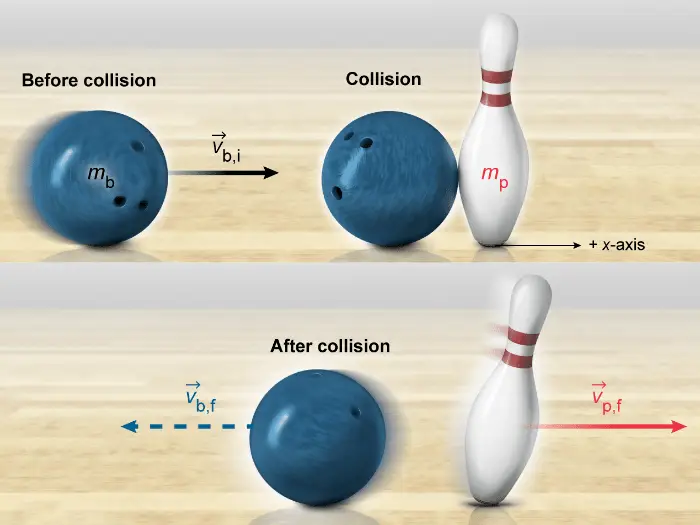About AP® Exams
Your Complete Guide To The College Board® AP Exams
If you are a high school student aspiring to attend college and you want to earn that ‘extra’ bit of credit before you graduate, read on! Here’s all you need to know about AP® exams, how to prepare for them, and all the other nitty gritty things to help you plan your courses, credits, and exams.
What Is Advanced Placement®?
Advanced Placement, commonly called AP, is a program created by the College Board® for high school students to help them earn college credit and placement. This program enables students to take entry-level college courses during high school and earn college credit by scoring well on AP exams given at the end of the courses. The AP program is recognized in the United States, Canada, and numerous other countries worldwide. The College Board defines AP as:
“A program that offers students the chance to tackle college-level work while they're still in high school—whether they're learning online or in the classroom. And through taking AP Exams, students can earn college credit and placement.”
The program offers courses in various fields of study, like English, history and social sciences, and sciences. Students can pick courses of their choice and take AP classes to prepare for the AP exams. Based on the scores of their AP exams, students can earn course credits or advanced placement, or both, from colleges and universities that recognize the AP program.
What Are AP Exams?
AP exams are college-level exams administered by the College Board in May every year. A student can take this exam after finishing the AP course for the subject of their choice. AP courses are offered at most high schools; however, students can take AP exams even if they study on their own. Students can opt for online sources like UWorld College Prep to learn AP course content from the comfort of their homes. The College Board allows students to enroll in multiple AP courses and take multiple AP exams in the same academic year. Results for the AP exams usually come out in the month of July.
How Many AP Exams Are There?
As of 2024, students can take the College Board AP exams for 38 courses. Each course is categorized under one of the following seven disciplines:
- AP Capstone Diploma Program
- Arts
- English
- History and Social Sciences
- Math and Computer Science
- Sciences
- AP World Languages and Culture
Want to learn more about AP courses? Our page on AP Courses is here to guide you through each course and help you pick the right one for yourself!
Why Take AP Exams?
Do AP exams give you an edge? The answer is yes! Taking AP courses and exams can play a crucial role in the college admissions process. An AP exam is not mandatory to get admission into college. However, acing AP exams builds confidence and allows you to plan ahead by helping you realize your potential and ability to stretch academically.
While different colleges may have different requirements, the general rule of thumb is that acing AP exams gives you the opportunity to earn free college credits. Yes, you heard it right! Typically, with a score of 3 or higher on AP exams, colleges recognize you as eligible to take higher-level courses by skipping the entry-level ones. Most colleges across the United States offer free credits that go towards the total credits required for you to graduate. If you have passed AP exams for a few subjects, chances are you will walk into college with course credits already under your belt—all this without even starting your first college course! Undoubtedly, this is the biggest advantage of taking AP exams in high school.
“Institutions around the world recognize AP when making admission decisions and allocating university credit. In fact, half of the students going to four-year colleges are now starting school with some credit from AP courses!”
Planning for your upcoming AP exam? Start your AP journey today with UWorld’s AP Exam Practice Questions. Sign up for a free trial today!

Format of AP Exams
In general, an AP exam has two sections. The first section consists of multiple-choice questions, and the second section consists of free-response questions. Students are allowed to take a break between Sections I and II. Most AP courses have a paper-and-pencil exam, but a few courses have different ways to assess what you’ve learned. In some courses, like AP Art and Design, students must submit a portfolio of work for scoring. Recently, the College Board authorized AP exams to be taken digitally by students as a response to the COVID-19 pandemic.
So, how long are these AP exams? Depending on the subject chosen, the length of an AP exam may vary from anywhere between 120 minutes and 200 minutes.
Most AP exams follow a standardized question template. As mentioned above, most AP exams consist of two sections. Let’s have a brief look at these sections.
Section I: Multiple-Choice Questions (MCQs)
The first part of your AP test consists of multiple-choice questions (MCQs) where you need to pick the correct answer from four or five choices given to you for each question. Using a pencil, you need to bubble in your choice on your AP answer sheet for the paper-and-pencil exams. The MCQ answer sheet is scanned by a machine and a raw score is provided based on the number of answers you got correct. Remember, you won’t be penalized for a wrong answer. Your score is based only on the number of correct answers. So, even if you are not certain of the correct answer, be sure to answer every question! Usually, the time allotted for the MCQ section is between 60 and 90 minutes, depending on the subject.
Section II: Free-Response Questions (FRQs)
The second part of your AP exam consists of free-response questions (FRQs) where you write your own responses. There are two types of free response questions: short answer and long answer questions. This section will assess your analytical, and problem-solving skills. As the name suggests, the free-response section gives you flexibility in answering the question. As such, this section does not come with a preset formula, and each subject has its own structure of FRQs. The time allotted for this section ranges from 60 to 90 minutes, depending on the subject you’ve chosen.
Digital Format of AP Exams
For the 2024 AP exams, schools in the 48 contiguous states and Washington, D.C. can opt for either paper or in-school digital exams, or a combination of both. Contact your participating school around mid-August to get detailed information about in-school digital exams. According to the College Board, a new version of the AP exam app has been developed to administer the digital examinations.
On the digital exam, students will answer free-response questions with a keyboard, rather than by hand. Students taking digital exams will not be asked to draw or graph as part of their response—instead, these skills will be assessed with questions containing graphs or other stimuli. The digital exam app will include any symbols that students would need to type their responses. No handwritten or photographed work will be required or accepted.
It is important to note that some exams have different formats for paper and digital forms. The differences vary by exam, such as a change in the number of free-response and multiple-choice questions, different time allocations for each section, etc.
You can refer to the In-School Digital exam: 2024 for more information about which AP courses are administered in digital format.
How Are AP Exams Scored?
AP exams are scored on a 5-point scale. This scale determines how qualified a student is to receive college credit and placement. Here’s what the AP score-sheet looks like:
| AP Score | Recommendation | Equivalent College Grade |
|---|---|---|
| 5 | Extremely Well-Qualified | A+ or A |
| 4 | Well Qualified | A-, B+, or B |
| 3 | Qualified | B-, C+, or C |
| 2 | Possibly Qualified | — |
| 1 | No Recommendation | — |
Your answers are graded to determine the number of raw points that were earned on each section of the AP exam. The weight assigned to each section varies by subject; however, for all exams, the total scores from each section are combined to give a composite score. The maximum composite score varies from subject to subject but usually is over 100 points. The College Board then translates your composite score into a scale from 1 to 5. This scaled score is your final AP score that reflects on your transcript and records. It is important to note that AP exams are never scored on a curve.
While most colleges accept a score of 3 and above to provide college credit, some colleges recognize a score of 4 or 5 only. As a rule of thumb, aim for a minimum score of 4 while prepping for your AP test. Be sure to check out the acceptable scores for your preferred college while you prep for your AP exams.
If you’re curious to know more, check out our AP Exam Scoring page for more in-depth information.
When Are the AP Exams Scheduled?
The AP exams are held every year in the month of May over a period of two weeks. In addition to that, the College Board also administers AP exams on late-testing dates for students who are not able to take the test on the scheduled dates due to any emergency or issue. If you are self-studying for an AP exam, contact a participating AP school no later than November 15th in order to register for exams to be administered the following May.
Taking the AP exam this year? Check out our AP Exam Schedule and Dates page for the latest exam schedule and test dates.

Who Is Eligible to Take AP Exams?
High school students around the world can take AP exams. If you are in a high school that is offering AP classes, you can enroll in the class and take the exams. Most students take AP exams starting from 10th grade. In some cases, students take AP tests even during 9th grade. However, this is not typically recommended due to the lack of preparation for college-level courses at this age.
A question often asked by students is whether it is necessary to enroll in AP classes in order to take the exam. The answer is NO. You can take the AP exam even if you are studying independently for it. This means that homeschoolers can also take AP exams!
You can start by searching the AP Course Ledger on the College Board website to find schools near you that offer AP courses and administer AP exams. Remember to shortlist more than one school in and around your area from the catalog. Once you have the schools shortlisted, reach out to their respective AP coordinators prior to November 15 to inquire if they are offering AP exams for homeschooled students for that year. The AP coordinator is responsible for ordering your exam materials, telling you when and where to report for the exams, and collecting the exam fees.
While the College Board administers a uniform set of guidelines and policies, your test center might have some added regulations. Further, the College Board ensures several provisions for test takers with disabilities or special needs on test day. It's a good idea to learn about the policies in advance. If you are curious to learn more about the eligibility and registration process, exam policies, and special accommodation exams, check out the AP Exam Eligibility and Registration page for additional information.
Retaking the AP Exam?
If you are asking yourself, “Can I retake an AP exam?” the good news is that you can retake an AP exam in the subsequent year if you are not satisfied with your current AP score! But remember to declare the score you wish to cancel/withhold, or both scores will be reported.
What happens if you don’t take the AP exam?
If you have paid for an AP exam but did not take it, you will be charged a fee for the unused exam kit, and the balance amount will be refunded back to you. Usually, schools collect the AP exam fees from students and can get refunds from their schools once the exams have been administered.
What happens if you can’t take the AP exam on your scheduled date?
In case of an unexpected issue or crisis that prevents you from taking the exam on your scheduled date, you can reach out to your AP coordinator who will advise whether a late testing date is available for you.
What happens if you fail an AP exam?
Nothing happens! You’ll still be able to get into college. However, you might lose some brownie points for your college admission that could have given you an edge over your peers. Mainly, you just won’t get the college credit you could have earned had you scored higher on the exam.
If you are preparing for your AP exam this May, we can help. Challenging practice questions, detailed explanations for correct and incorrect answers, and digital performance tracking are just a part of what makes our online courses for AP second to none. You’ll love your increased understanding in the classroom and the higher test scores you’ll achieve with UWorld!
How to Study for AP Exams
AP exams are flexible. You can choose as many subjects as you would like from the 38 subjects that the College Board AP program offers you. However, you can take each AP exam only once per year. Students usually start their prep during the fall and ramp up their studies from January onwards. AP classes are more challenging than your usual high school classes, so you’ll need to study for those extra hours. Of course, the prep time will differ depending on your study habits and high school curriculum. Preparation is critical to getting a perfect score on the exam, so it’s important to start planning your prep as early as possible. If you are taking an AP exam this May, here’s a checklist to help you prep:Prepare a schedule.
It is recommended to start off with a schedule around 3-4 months before the exam date. Planning your schedule in advance saves you the last-minute hassle and also gives you some spare time to revise, rewind, and relax. You don't want to be running through your notes until the last minute!
Always start by understanding what you want to review and learn.
This outline helps you to delegate time, focus energy on your weaknesses, and hone your strengths. The goal is to allow yourself to review content, learn new topics and get used to the exam question format.
Start off by reviewing the old materials.
Set aside around 20-30 minutes from your everyday study schedule to jog your memory through the old study materials. Review is key to effective memory retention!
Approach new materials with AP prep in mind.
As you progress through the rest of your school year, keep making notes for your AP exam on the side. These notes will come in handy every time you go back and review these topics for your AP exam.
Seek help!
It's not wise to rely completely on your high school classes for your AP prep. Therefore, it is a good idea to get help from AP college prep sources that have AP Exam Practice Questions. Practice makes perfect. With our expert courses to guide you, reaching that 5 is no longer a wild goose chase!
What Are the Most Popular AP Exams?
Are you curious to know about the most popular subjects for AP exams? According to the College board's Twitter updates, these eight AP exams that were the most popular among students in 2023:
Test Takers in 2023 per Subject
What are the most difficult AP exams?
Courses like Physics C – Electricity & Magnetism, Chemistry, U.S. History, Biology, and English Literature are known for their challenging content and extensive knowledge requirements. However, even "easier" AP courses can result in lower exam scores due to factors such as overconfidence, a mismatch with a student's abilities, lack of interest, test anxiety, poor preparation, or external pressures.
Interestingly, when examining the 2023 data on AP exam success rates, some courses initially perceived as less challenging emerged as among those with the lowest pass rates, underscoring that difficulty is subjective and multifaceted:
2023 Pass Rates per Subject
*This list excludes Foreign Language, Arts, Research and Seminar subjects.
What are the easiest AP exams?
Courses such as AP Psychology, AP Computer Science Principles, AP Environmental Science, AP Human Geography, and AP Microeconomics are often considered more accessible because their content closely relates to everyday experiences and broader concepts. This perception of ease, however, is nuanced and deeply personal.
Analysis of the 2023 AP exam success rates revealed that some courses traditionally viewed as challenging had some of the highest pass rates, highlighting the subjective nature of academic difficulty and success:
2023 Pass Rates per Subject
(AP Score ≥3)
*This list excludes Foreign Language, Arts, Research and Seminar subjects.

References
- College Board. (n.d.). About digital AP exams. AP Central. Retrieved February 29, 2024, from https://apcentral.collegeboard.org/exam-administration-ordering-scores/digital-ap-exams/key-facts#:~:text=digital%20AP%20Exams.-,About%20Digital%20AP%20Exams,timing%20as%20the%20paper%20exams.
- College Board. (n.d.). Digital AP exams. AP Central. Retrieved February 29, 2024, from
https://apcentral.collegeboard.org/exam-administration-ordering-scores/digital-ap-exams - College Board. (2023). AP score distributions by subject – 2023. AP Central. Retrieved from https://apcentral.collegeboard.org/media/pdf/ap-score-distributions-by-subject-2023.pdf
- College Board. (n.d.). What is AP? AP Students. Retrieved February 29, 2024, from
https://apstudents.collegeboard.org/what-is-ap